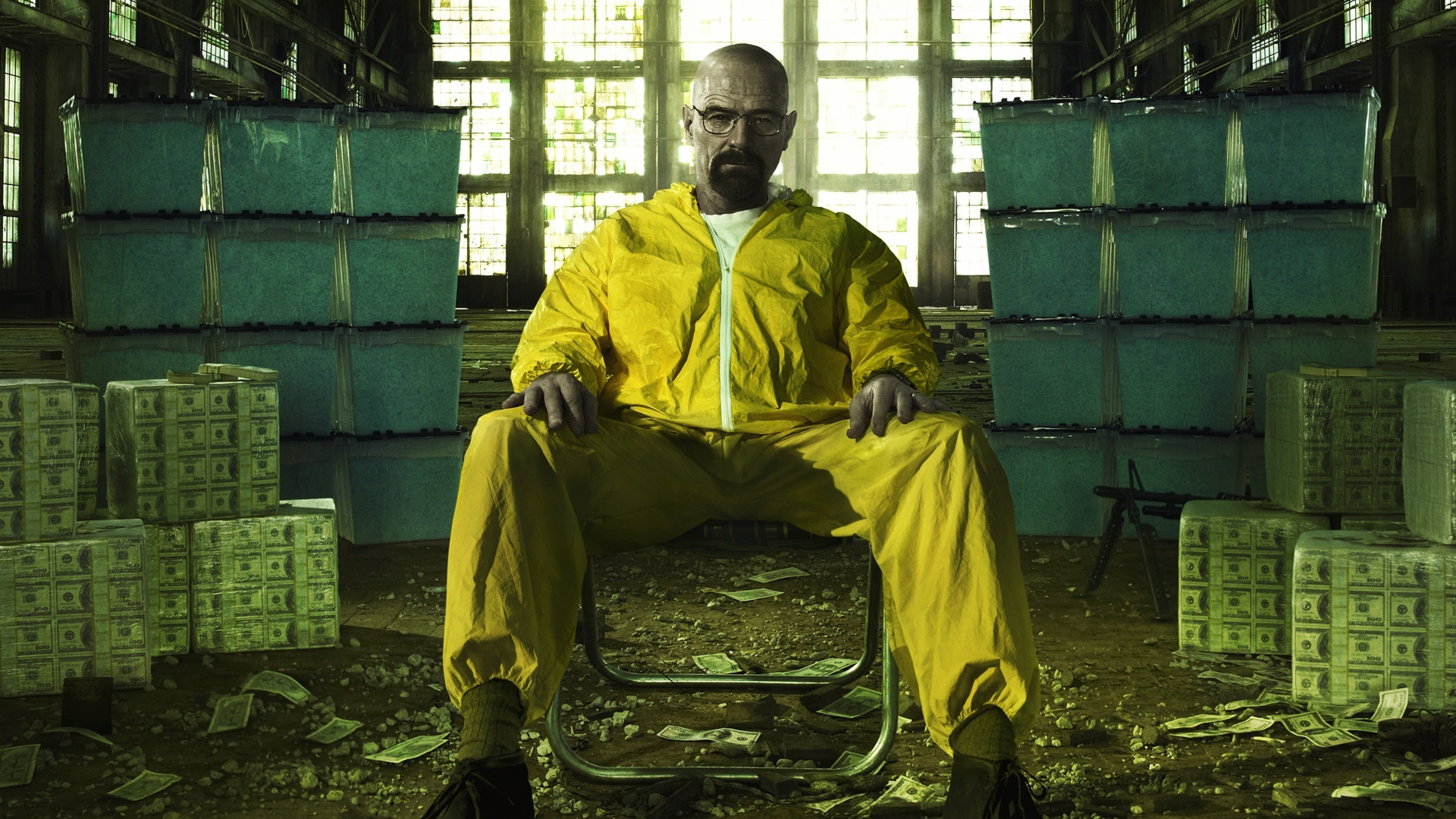The Best TV Series of the Decade: A Look at the Shows That Defined the 2010s
The 2010s were a golden era for television, with shows that changed the way we view storytelling, entertainment, and even society. From dark dramas to groundbreaking comedies, the past decade has produced an incredible array of TV series that not only captivated audiences but also left a lasting cultural impact. Let's take a look at some of the most influential and beloved shows of the 2010s that defined the decade.

Breaking Bad (2008-2013): A Masterclass in Transformation
The Story of Walter White
Though Breaking Bad started in the late 2000s, its impact continued throughout the 2010s. Created by Vince Gilligan, the series follows high school chemistry teacher Walter White (Bryan Cranston), who turns to cooking methamphetamine after a cancer diagnosis. The show became a sensation for its dark and complex portrayal of morality, ambition, and crime.
- Cultural Impact: The show's exploration of a “good man turning bad” became iconic. Walter White’s transformation into the notorious “Heisenberg” remains one of the most memorable character arcs in TV history. It also inspired a spin-off, Better Call Saul, which has further solidified the show's legacy.
- Why It Defined the Decade: Breaking Bad set a new standard for character-driven storytelling and paved the way for other series with complex narratives. It showed that TV could rival film in terms of depth, quality, and acting.
Game of Thrones (2011-2019): The Epic Saga That Took Over the World
A Fantasy Revolution
Based on George R.R. Martin’s A Song of Ice and Fire, Game of Thrones became a cultural phenomenon. The show, filled with political intrigue, complex characters, and shocking twists, captivated millions with its epic battles and deep character arcs. It’s hard to overstate the influence of this show, which became the standard bearer for high-budget fantasy TV.
- Cultural Impact: From the infamous “Red Wedding” to the rise and fall of iconic characters like Jon Snow and Daenerys Targaryen, Game of Thrones became a global talking point. It broke viewership records and became a pop culture staple with references, memes, and fan theories dominating social media.
- Why It Defined the Decade: The show pushed the boundaries of television production, using huge budgets to bring grand-scale battles and impressive special effects to the small screen. Its success also marked the golden age of fantasy on TV, making it a major influence on future genre series.
Stranger Things (2016-Present): Nostalgia Meets Sci-Fi Horror
A Love Letter to the '80s
Stranger Things arrived on Netflix in 2016 and instantly became a cultural touchstone. Set in the 1980s, it combined elements of sci-fi, horror, and coming-of-age drama. The story, centered around a group of kids trying to rescue their friend from a mysterious parallel dimension called the "Upside Down," drew inspiration from Spielberg and Stephen King.
- Cultural Impact: The series reignited a love for '80s nostalgia, making references to movies like E.T. and The Goonies while crafting its own thrilling and unique narrative. It launched breakout stars like Millie Bobby Brown and reinvigorated the sci-fi genre for a new generation.
- Why It Defined the Decade: Stranger Things ushered in a new era of binge-watching, with Netflix's streaming platform allowing fans to devour episodes in one sitting. It also helped popularize the concept of shared universe storytelling, with subsequent seasons expanding the scope of the series.
The Crown (2016-Present): A Regal Story of Power and Family
Inside the British Monarchy
The Crown, created by Peter Morgan, follows the life of Queen Elizabeth II, exploring both the personal and political aspects of her reign. With its lavish production, complex performances, and deep dive into historical events, The Crown became a hit among both critics and audiences.
- Cultural Impact: The show sparked renewed interest in the British royal family and generated conversation about their role in modern society. Its portrayal of the tension between public duty and personal desires also resonated with viewers on a universal level.
- Why It Defined the Decade: The Crown raised the bar for historical drama, showing that you could mix detailed biographical storytelling with high-end production values. The series also elevated streaming platforms, proving that Netflix was capable of producing award-winning original content.
Black Mirror (2011-Present): A Dark Reflection of Technology
The Dark Side of Innovation
Black Mirror, created by Charlie Brooker, became synonymous with dystopian storytelling. The anthology series explores the consequences of modern technology, often painting a grim picture of its potential future impact on society. Each episode stands alone, delving into issues like surveillance, social media addiction, and the darker aspects of human nature.
- Cultural Impact: The show’s exploration of technology's darker side struck a chord with audiences as society grappled with the rise of social media, artificial intelligence, and surveillance. Terms like "the Black Mirror effect" became part of the cultural lexicon, underscoring how relevant the show was.
- Why It Defined the Decade: Black Mirror perfectly captured the anxieties of the digital age. Its satirical, yet terrifyingly plausible, portrayals of technology’s impact made it a critical lens through which to examine modern life.
Fleabag (2016-2019): A Bold, Hilarious, and Heartbreaking Journey
Phoebe Waller-Bridge's Masterpiece
Fleabag, created by and starring Phoebe Waller-Bridge, is a dark comedy that follows a young woman navigating grief, loneliness, and complicated relationships. Its sharp writing and fourth-wall-breaking narration made it a standout in both comedy and drama.
- Cultural Impact: Fleabag became an instant cultural darling, with Waller-Bridge earning accolades for her performance and writing. The series' raw, vulnerable approach to female sexuality, mental health, and identity resonated with a wide range of viewers.
- Why It Defined the Decade: The show was a masterclass in blending humor with depth, showing that TV could be both hilarious and emotionally complex. Its critical success also helped solidify the idea that TV could be a platform for highly original, personal storytelling.

The Mandalorian (2019-Present): A Star Wars Renaissance
A New Hope for Star Wars Fans
The Mandalorian arrived on Disney+ in 2019 and marked a new chapter in the Star Wars saga. Set in the aftermath of the original trilogy, it follows the story of a bounty hunter and his adorable companion, Baby Yoda (or "The Child"), in the outer reaches of the galaxy.
- Cultural Impact: The show was a massive hit, revitalizing the Star Wars franchise for a new generation. Baby Yoda became an internet sensation, and the show’s innovative use of technology, including its groundbreaking virtual sets, set new standards for production.
- Why It Defined the Decade: The Mandalorian was a major success for Disney+, highlighting the growing power of streaming services to drive new content. Its blend of classic Star Wars elements with fresh, standalone storytelling made it an instant fan favorite.
Conclusion: TV That Changed the Game
The 2010s were an exciting time for television. The shows of the decade not only entertained us but also sparked important conversations about culture, technology, identity, and society. From the dark, emotional depth of Breaking Bad to the thrilling, world-building escapism of Game of Thrones, the 2010s cemented TV’s place as a powerful medium for storytelling. As we look ahead to the future of television, we’ll undoubtedly continue to see the influence of these landmark shows shaping the industry for years to come.












